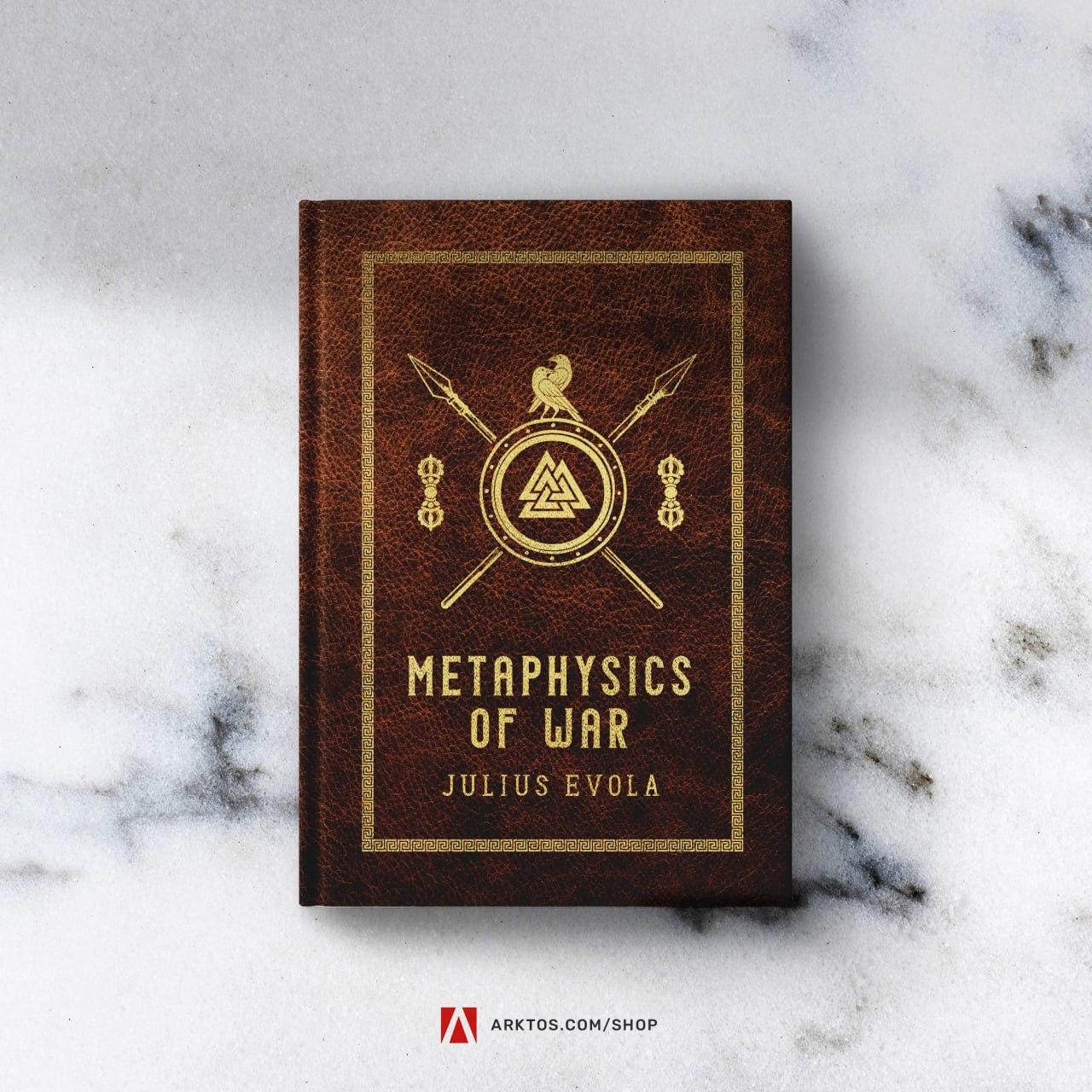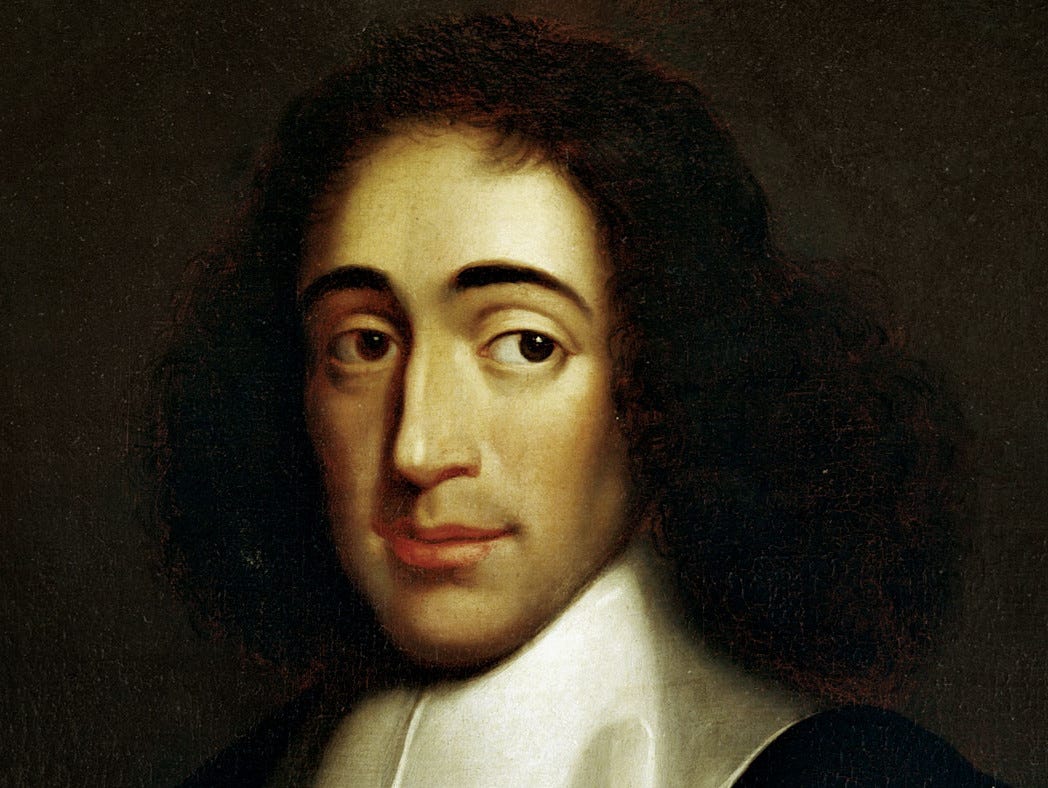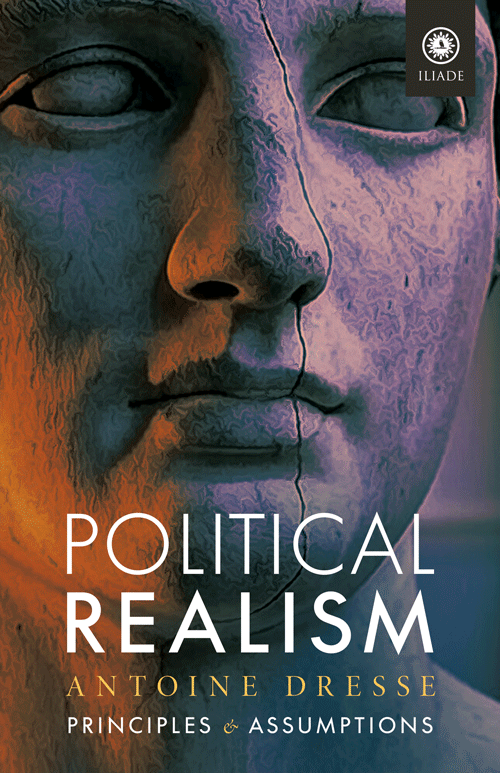Spinoza: Freedom of Thought and the State
According to Antoine Dresse (“Ego Non”), Spinoza presents a political framework where the state achieves its fullest sovereignty not through tyrannical suppression of thought, but through reconciling citizens’ obedience to laws with their freedom to think, judge, and speak reasonably, making intellectual liberty both useful and necessary for the state’s stability and legitimacy.
Does freedom of thought and expression threaten social order? Our era likes to believe it constitutes a model for guaranteeing freedoms. Yet, as Marx quite rightly reminded us, just as one does not judge an individual by the idea he has of himself, one cannot judge an era by its self-consciousness. Indeed, one need only see how ideas that don’t conform to the dominant doxa are treated to realize how much this question still haunts minds, though in a more shameful and indirect way than in the past.
Defending freedom of expression sometimes seems somewhat idealistic. But there are thinkers who have endeavored to defend it from a strictly political point of view. This is notably seen in Spinoza’s Traité théologico-politique (Theologico-Political Treatise). The author of the Éthique (Ethics) was indeed an attentive reader of Hobbes and Machiavelli. In an era torn by religious wars, where states were led to believe that freedom of thought necessarily led to all kinds of seditions, Spinoza took it upon himself to demonstrate, on the contrary, that it is the prohibition of freedom of thought that leads to the ruin of the state and the dissolution of society.
The starting point of his reflections strongly resembles that of Hobbes: in the state of nature, men follow “natural right” (jus naturale), which is, in Spinozist language, the power to act according to the laws of nature – and even more specifically, to act according to the laws of one’s nature. It is another name for the tendency to persevere in one’s being which is, according to the Éthique, the essence of every individual in action.
The only rule that natural right obeys is therefore that of our nature. From this, one understands that the state of nature is a state of conflict and disorder. Nothing guarantees stability in the state of nature. Men thus find themselves in a situation of permanent precariousness and insecurity. Now, men want to feel secure and not have the feeling of being prey to constant threat. Natural right being unlimited by nature, it is the cause of the instability of the state of nature, so it will have to be abandoned. But to abandon does not mean to destroy; it is much more about a transfer, a transfer that puts this natural right in the hands of a collective entity which is none other than society. This is thus the passage from the state of nature to the civil state, where individuals cease to act according to their simple inclination, but now take into account an entire normative and legal framework. To obtain security, men therefore accept to restrain their “appetites” and to entrust their natural right to a sovereign so that he may defend them.

However, similar though it may be, this process differs from that described by Hobbes in that there is no real break between the state of nature and the civil state. For Spinoza, the second is only the continuation of the other.
Indeed, natural right is defined in Spinoza as power, freedom, or desire. This desire is none other than that of persevering in one’s being, the conatus. In other words, natural right is the effort one makes daily to preserve oneself. Now, this effort to preserve oneself is not specific to the state of nature. Whatever the state or society in which an individual may find himself, he will always make this effort to persevere in his being. The transfer of natural right to the sovereign cannot therefore entail, as Hobbes believes, the total abandonment of individual powers to public power.
Spinoza does not hesitate to say that power must be absolute, that is, in the language of the time, independent, without hindrance: no individual should be able to impose anything on the State. Yet one cannot say that the transfer of natural right to the sovereign is an achievement, realized once and for all, as with Hobbes. Being sovereign is not something automatically realized. Sovereignty is like a process never definitively completed. The State is sovereign as long as its power allows it to be. And it is on this that Spinoza’s defense of freedom of thought is founded.
Spinoza remains convinced that citizens owe unconditional obedience to the sovereign’s laws. This unconditional obedience comes from the fact that order, even the worst, is better than the total absence of order. Tyranny is still better than the absolute state of nature. However, the sovereign cannot rely solely on this unconditional obedience; it is by achieving consented obedience that he will attain the fullness of his sovereignty. Thus, as soon as the State becomes aware that the consent or love of its subjects is a guarantee of its sovereignty, it has every interest in behaving reasonably.
The fullness of sovereign power is thus acquired in the reconciliation of individuals’ obedience and their freedom. This seems contradictory: how can the State make submission and freedom coexist? This is where, the philosopher tells us, we only have rights over what is possible for us to exercise our power. The State, therefore, cannot exercise its power over the very nature of man. Now, it is precisely in man’s nature to make use of his reason. No power has the means to make him abdicate it. The Sovereign thus exceeds his right and is considered tyrannical not when he constrains bodies for the sake of security, but when he oppresses the freedom of the mind.
This is how Spinoza defends freedom of thought as useful and even necessary for the good of the State. The State must ensure security, and this by means of domination, but domination is not an end in itself. Security is its end insofar as it is the prerequisite for a free life. This is how obedience and freedom are reconciled: each person freely and voluntarily resigns himself to abandoning his right to act as he pleases, but not the right he has to reason and judge. Thus, everyone must respect the sovereign’s laws and never act in opposition to his decrees; but everyone can think, judge and consequently speak with complete freedom, “provided that he limits himself to speaking and teaching by appealing only to reason, and that he does not go about using cunning, anger, hatred, nor endeavor to introduce by his private authority any innovation in the State.”
Let us imagine that a citizen considers a given law to be repugnant to sound reason or morality and that, for this reason, it should be repealed. If he begins to rail against the sovereign and accuse him of iniquity, if he undertakes to make him odious before the people and to foment sedition, he becomes a disturber of public order and a rebellious citizen, says Spinoza. The Sovereign therefore has the right to punish him. On the other hand, if he submits his feeling to the sovereign’s judgment, explains it with reason and acts in no way against the law, not only should he not be punished, but he should even be regarded as a good citizen.
Individual freedom of thought appears to Spinoza as the insurmountable limit of political power. Thus, comments Julien Freund, “instead of seeking to suppress this freedom through violence which would never overcome it, it is in the government’s interest to accommodate itself to it. By acting in this way, not only will it gain the confidence of its subjects, but it will overcome its own fear. Freedom of conscience is useful to both the governed and the governors and thus becomes the bulwark of internal security and the condition of social peace.”
Originally published in Éléments no. 212, February-March 2025
Translated by Alexander Raynor







The state/government deliberately make it difficult to have dissent heard. Almost impossible for an individual or small group to make a crack in fortress State to raise injustices